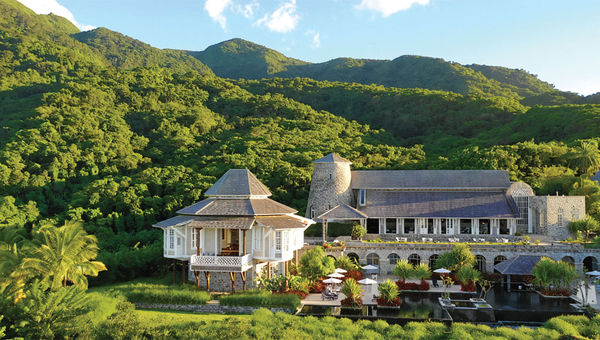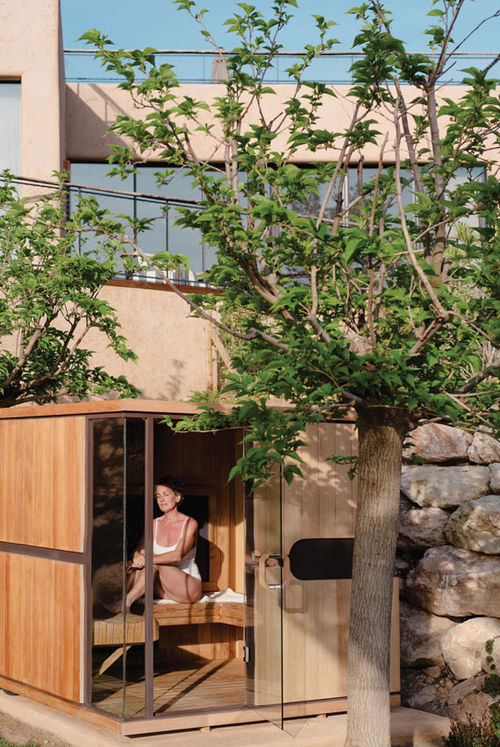A wellness arms race is heating up in the luxury hospitality sector, with a promise of longer and healthier lives.
And as more players enter the fray, offering increasingly sophisticated longevity treatments catering to the ultrawealthy and health-obsessed, it seems there's no limit to how far the medical-wellness boom can go.
"It's astounding the speed in which a new focus on longevity is rewriting the wellness market," said Beth McGroarty, research director at nonprofit research group Global Wellness Institute.
According to the institute, medical-wellness longevity clinics represent one of the fastest-growing business categories within the global wellness sector.
McGroarty attributes this surge to several factors.
"People are seeking a longer health span and a dramatically different way of aging than their parents and grandparents," she said, adding that because "the medical establishment is still not focused on prevention, people of means are seeking a new concierge medical-wellness approach to prevent problems."
The stakes in these wellness wars are high, with treatments at many resorts with medically focused programming commanding sky-high prices.
"If you think about a luxury spa treatment, that might be around $500, but some of these [longevity treatments] are $10,000, $25,000 or more," said McGroarty, pointing out that the increase in wealth among the richest Americans since the pandemic has also fueled the proliferation of these ultra-expensive wellness offerings.
McGroarty cited examples like the Four Seasons Resort Maui at Wailea, which has teamed up with medical-longevity company Next Health on offerings including a $12,000 stem cell treatment, or a four-session "longevity protocol" that includes ozone, stem cell, exosome and nicotinamide adenine dinucleotide, or NAD+, therapies for $44,000.

A rendering of The Estate hotel on St. Kitts, which is expected to open in 2026. Photo Credit: SBE
Moves by other industry giants highlight the increasingly competitive nature of the market.
In mid-September, SBE joined forces with author and life coach Tony Robbins to unveil The Estate, a hotel brand focused on preventive medicine and longevity. At the heart of The Estate's concept is a partnership with Fountain Life, a company co-founded by Robbins that specializes in disease detection and prevention and offers access to MRI scans, genome sequencing, advanced blood diagnostics and other cutting-edge medical technologies.
The Estate's expansion plans are ambitious: It aims to open 15 hotels and residences, along with 10 urban preventive-medicine centers, by 2030. The flag's first four hotels are slated to debut in 2026 in St. Kitts, the U.K., northern Italy and Montreux, Switzerland, with additional locations planned for Miami and in the Persian Gulf region.
According to SBE, The Estate ultimately aims to become "the world's biggest network of longevity-focused resorts and residential projects."
But The Estate isn't alone in this pursuit. Established players like Canyon Ranch, Six Senses, SHA and Lanserhof are continuing to aggressively innovate and expand, vying for a larger share of the lucrative medical wellness market.

A guest in an infrared sauna at the Six Senses Ibiza's RoseBar. Photo Credit: Six Senses Ibiza
Despite being known for its more holistic wellness approach, IHG Hotels & Resorts' Six Senses is getting into medical wellness with its RoseBar longevity concept, which debuted at the Six Senses Ibiza last year.
This summer, Canyon Ranch launched Longevity8, a four-day program that includes 15 diagnostic tests designed to assess over 200 biomarkers, as well as 18 one-on-one consultations and six months of virtual follow-ups. The program will debut at Canyon Ranch's Tucson, Ariz., resort in November and is priced at $20,000 per person.
Lanserhof, known for its trio of health resorts in Austria and Germany that focus on caloric-restriction programs, announced plans to open a fourth property, in Marbella, Spain, by 2026.
And Spain's SHA, another powerhouse in the medical wellness space, opened its second resort in Mexico's Costa Mujeres last year, with a third location on track to open in the United Arab Emirates by 2025.
However, this rapid expansion and diversification of offerings has come with challenges. As brands jockey for position in this competitive landscape, they're also grappling with the problem of clearly defining their offerings.
"I think the word longevity, like the word wellness, is getting stretched so thin -- what isn't longevity these days?" McGroarty said, highlighting the potential for consumer confusion.
There's also potential for market saturation, she added.
"All of this medical wellness and longevity programming has been pitched at the 1% or the 2%," said McGroarty. "You're seeing all these [business] models come in, and so it is a lot of crowdedness in a space that's geared at a very small segment of the population."